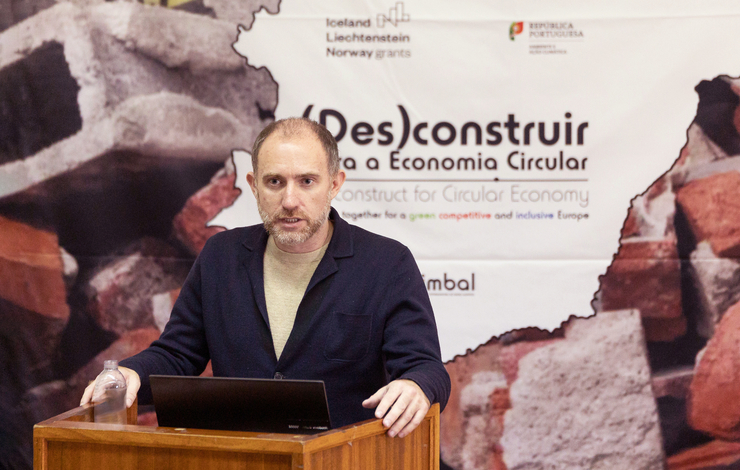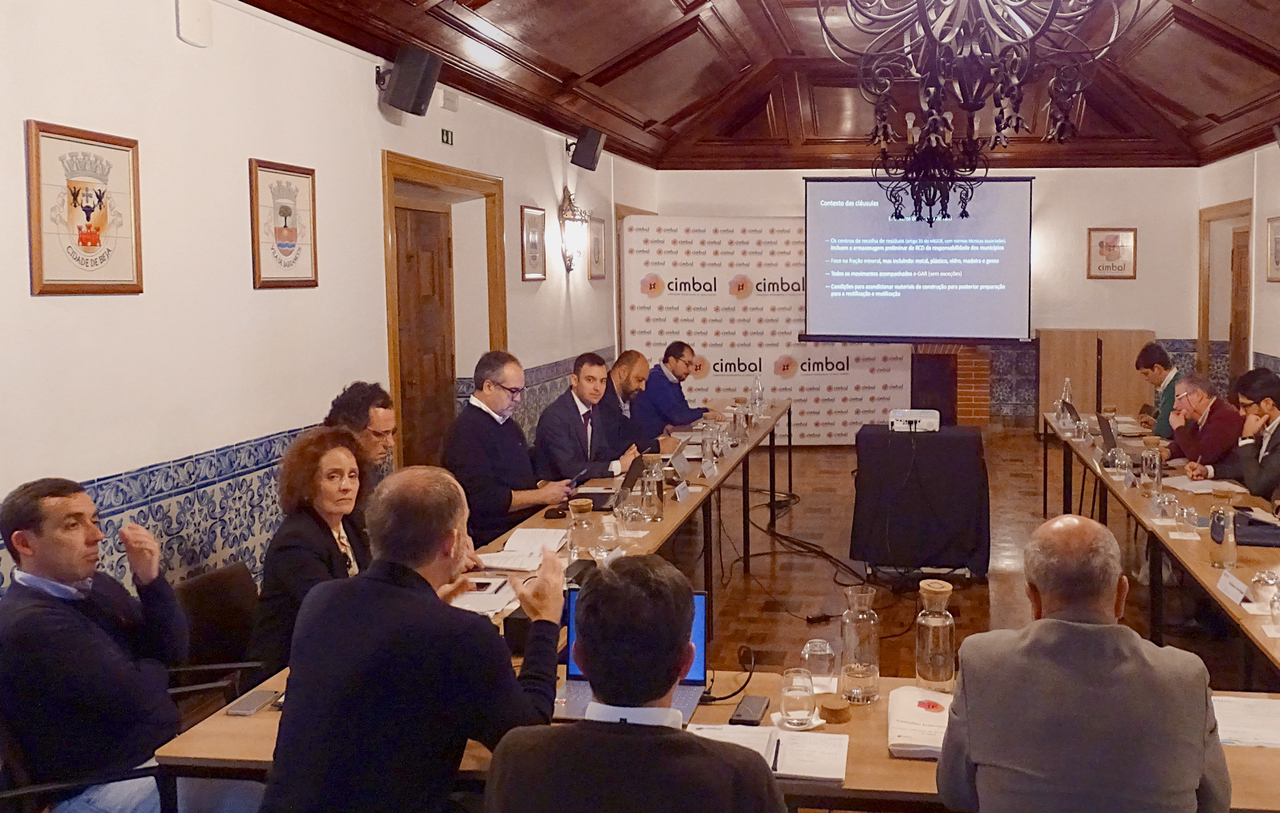06-02-2023

The final event of the "(De)construct for Circular Economy” project, which took place last December 13th, presented the results that demonstrate the importance of the cooperation between municipalities and micro and small construction companies for the effective and sustainable management of Construction and Demolition Waste (CDW) on a local scale.
The project, of which NOVA School of Science and Technology was a partner, for two years, focused on the promotion of the principles of circular economy in the construction sector, in the Baixo Alentejo region.
The work developed by the FCT NOVA team focused on four core areas: awareness and training of municipal technicians and representatives from micro and small construction companies, as they have specific challenges about CDW management; the creation of a proposal for regulatory clauses about CDW management, to harmonize the legal framework criteria between municipalities; study of illegal dumping of CDW, contributing to the resolution of significant gaps in data currently available; and testing local strategies to improve the management of this type of waste, in terms of preliminary storage of CDW, awareness of stakeholders and supervision of practices at construction sites, and also in the associated procedural control.
These results were also presented on 12 December at the Baixo Alentejo Intermunicipal Council, with the aim of promoting the awareness of the elected representatives of the thirteen13 municipalities of the region to the change of paradigm in the management of this waste, given the territorial context in which they are established.
This project was funded by the EEA Grants mechanism, and promoted by CIMBAL - Intermunicipal Community of Baixo Alentejo, which coordinated seven national partners, as well as partners from three other countries: Norway, Czech Republic and Romania. The FCT NOVA team was composed by Mário Ramos, Graça Martinho, Lia Vasconcelos and Filipa Ferreira, from the Department of Environmental Sciences and Engineering, integrating MARE - Center for Marine and Environmental Sciences.
